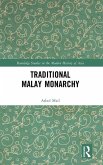This is an important and controversial work, hitherto available only in Korean, Japanese, and Chinese, a book which has been subject to court cases attempting to have some parts deleted. The author reconsiders the issue of the "comfort women," that is the Korean women who were compelled to provide sexual comfort to Japanese troops during the Asia-Pacific War. She explores the human complexity of the experiences of these women, who despite terrible exploitation, she feels, cannot and should not only be considered as passive victims. She sets the issue in context, revealing how Korean society played a role, with patriarchy and middlemen being significant factors in the procurement of comfort women, and how alongside the comfort women there were volunteer labor corps of Korean young women supporting the Japanese war effort. The author highlights Korea's colonial status, different from the territories Japan invaded and conquered, discusses how relations between colonizers and colonized in an empire are not straightforward, and argues that people should work to understand more fully the mindset of those at the time, and refrain from forcing values from the present to resolve indignities of the past. Aiming to find a way to pursue reconciliation while looking more closely at the history, the book provides substantial consideration of key issues to do with empire, memorialization, and censorship. It is an uncomfortable read for those seeking simplistic interpretations and easy solutions.
Bitte wählen Sie Ihr Anliegen aus.
Rechnungen
Retourenschein anfordern
Bestellstatus
Storno








